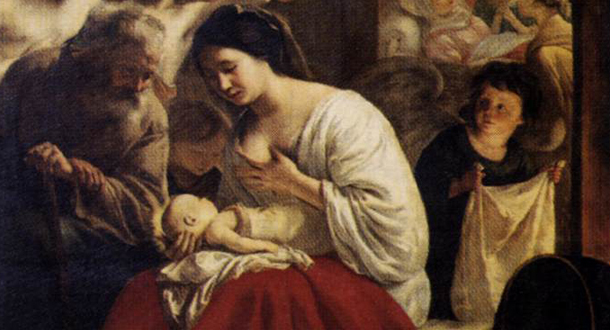
Nativity of the Blessed Virgin Mary
Scripture:
Micah 5:1-4a or Romans 8:28-30
Matthew 1:1-16, 18-23
Reflection:
In Saint Matthew’s gospel, the story of Jesus’ birth is told mostly through the eyes of Joseph. He is the one to whom the Lord reveals the Divine plan and Joseph is the one who is the principal actor in these early events. Joseph is however an ‘actor who never speaks’ either in interactions with others or indeed in his dialogue with the Lord. Joseph is a silent witness, but an acute listener and one who acts on every instruction given by the lord (albeit in dreams).
However, while the scripture highlights Joseph’s role in the birth of Jesus, today our focus is drawn towards Mary since the liturgy of today celebrates her birth – a Feast Day that has been celebrated in the Church from around the sixth century onwards.
Tradition celebrates Mary’s parents as Anne and Joachim (who only have the one child Mary herself). We know little of the life of Mary prior to her call by God and her marriage to Joseph, and as to Mary’s early years we must speculate. Perhaps we might consider two possibilities for the life that Mary lived.
Firstly we might note ancient tradition which stresses that from her very childhood Mary was dedicated to God and served in the Temple as a girl and young woman. This tradition can be seen in the writings of the Fathers of the Church who claim that Mary was presented to the Temple and served there from the age of three until the age of fourteen (when she was betrothed to Joseph and left such service to marry). Certainly there is evidence in the scriptures of women offering non-liturgical service in or around the Temple, and we encounter one such person in the story of Joseph and Mary meeting Anna – an elderly widow who spent her days in service at the Temple. But whether Mary lived such a life in her early years is beyond my knowledge.
Another way to reflect on Mary’s early years is simply to speculate that her life may have been no less than that of other young girls of her day. Although in such times girls were excluded from formally attending school, there is evidence that both mothers and fathers instructed their children in the Law, the scriptures and the customs and religious practices of the community. Mary’s faithfulness and dedication to God seems to provide ample evidence of her having an education that both nourished and informed her faith deeply. Of course for Mary, as for everyone in her society, education also meant learning basic skills – and indeed far more, since the scriptures record that apart from skills like weaving, cooking and sewing, women in fact undertook various tasks in agriculture and worked with textiles, perfumes and practiced as midwives.
But the essence of today is that of faithfulness. Mary’s whole life is given to God and her faithful stance becomes for us not just a key component in the story of our salvation, but a wonderful example to us of how to live our own lives.
Mary teaches us that discipleship knows no bounds, can be active at any age of our lives and that it is founded upon family, upon learning and listening and upon a deep sense of faith in God. Like Mary we are called to be listeners to the Word and to welcome the Word into our own lives so as to live our lives in service of Jesus ‘God with us’.
Fr. Denis Travers, C.P., is the Provincial Superior of Holy Spirit Province, Australia.
